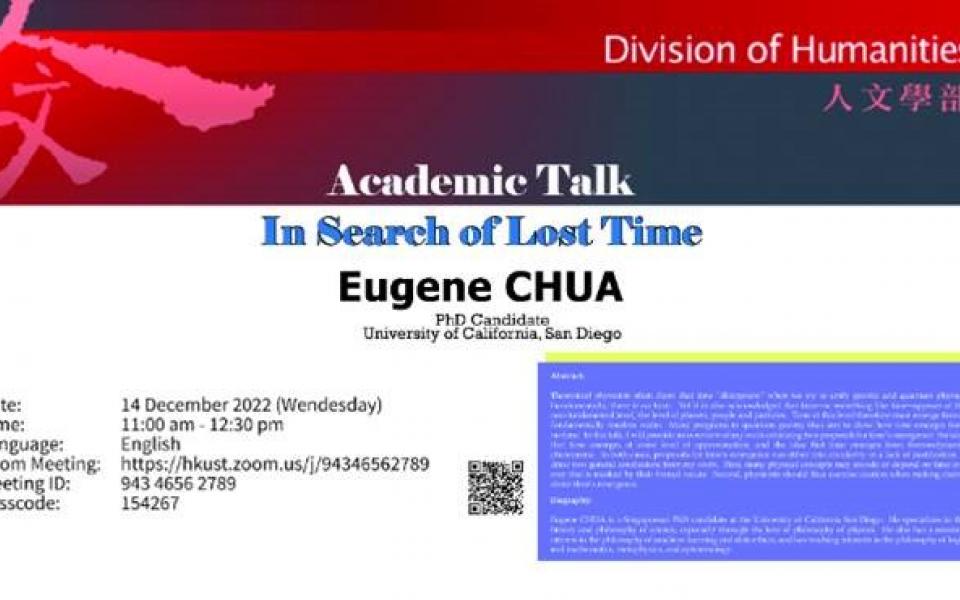Abstract:
Theoretical physicists often claim that time “disappears" when we try to unify gravity and quantum physics. Fundamentally, there is no time. Yet it is also acknowledged that time--or something like time--appears at the non-fundamental level, the level of planets, people and particles. Time at this level therefore must emerge from a fundamentally timeless realm. Many programs in quantum gravity thus aim to show how time emerges from no-time. In this talk, I will provide an overview of my work criticizing two proposals for time’s emergence: the idea that time emerges at some level of approximation, and the idea that time emerges from thermodynamic phenomena. In both cases, proposals for time’s emergence run either into circularity or a lack of justification. I draw two general conclusions from my work. First, many physical concepts may encode or depend on time in a way that is masked by their formal nature. Second, physicists should thus exercise caution when making claims about time’s emergence.
Biography:
Eugene CHUA is a Singaporean PhD candidate at the University of California San Diego. He specializes in the history and philosophy of science, especially through the lens of philosophy of physics. He also has a research interest in the philosophy of machine learning and data ethics, and has teaching interests in the philosophy of logic and mathematics, metaphysics, and epistemology.
Meeting ID: 943 4656 2789
Passcode: 154267
